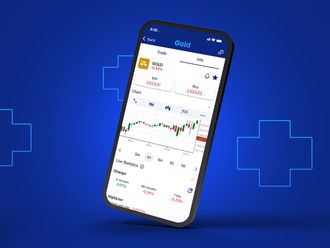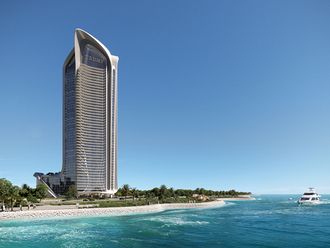The UAE is one of the cheapest countries to send money from, thanks to the strong competition in the market and high remittance volumes, industry officials say.
According to the World Bank, money transfer costs worldwide have decreased, with the total global average to send $200 (Dh734) amounting only to 9.4 per cent in the third quarter of last year, down from 9.67 per cent in the first quarter.
"This shows that there is indeed a natural trend in the market towards cost reduction. If we were to include Russia, the average would be much lower at 9.03 per cent," says Massimo Cirasino, World Bank's head of payment systems development group, at the Money Transfer Dubai Conference 2010.
Research findings show that 124 country pairs (sending and receiving countries) have experienced a 70 per cent reduction in transfer costs, while 54 country pairs increased costs by 30 per cent. UK and Russia posted the biggest decline in the last six months, while corridors from UAE "seem to have experienced" a general increase from 19 per cent to 80 per cent.
"But this data is only preliminary, so it's not very precise. Remittance costs in the UAE are still very competitive. The reason for this is there's a lot of competition in this market. You can also attribute this to the characteristic of the labour market," explains Cirasino in an interview.
Cheapest
According to the World Bank data, the cheapest corridors (excluding Russia) are Costa Rica, Saudi Arabia, Singapore, the UAE and Chile. The most expensive places to transfer money from are Japan, Dominican Republic, Brazil, South Africa and Australia.
The World Bank has been taking the lead in promoting the "5x5 objective" of G8 leaders, who pledged during the L'Aquila summit, in July last year, to reduce the average cost of sending money globally by 5 percentage points over five years.
It's been estimated that if remittance costs are reduced, about $15 billion net increase in income will be generated for migrants and their families.
Mohammad Al Ansari, chairman of Al Ansari Exchange, says the G8 leaders' call does not apply to UAE because transaction costs in the country are already low. "We don't charge by percentage. The transfer fee is fixed, regardless of the allowable amount you want to send, and it's very reasonable. We're talking an average of Dh15 per transfer," Al Ansari tells Gulf News.
He says transactions in the UAE are also transparent, thanks largely to the competition and high volume of remittance.
"When you're talking about thousands of customers, you have to be very transparent. You can't fool the consumers. Also, as the volume increases, the cost of transfer becomes less expensive. So, you pass on this benefit to the consumers. That justifies the reasonable charges," he adds.
There's no clear assurance whether or not the charges will remain low in the next few years, but Al Ansari says the industry is focusing on raising the volume of transactions further, not on increasing the rates.
"It should be noted that in the mid-'80s, the average transaction cost was Dh50. That's a big difference. Of course, the volume was much less before, but now the volume is much higher."
"If you compare it with the telecommunication industry, an increase in population drives charges lower. I remember some years back, a long distance call from the UAE to the US would cost me Dh20 to Dh25 per minute, now it's much less," he points out.
Pakistan
$9b
Egypt
$8b












